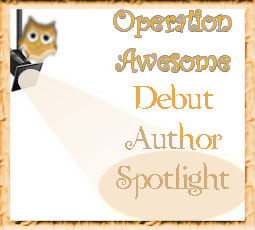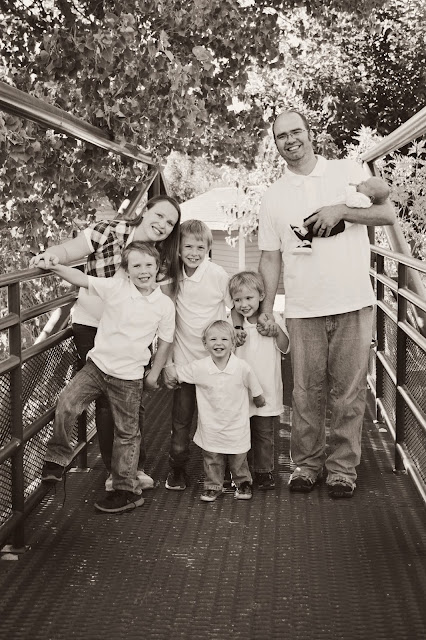
This pop-culture loving, 2016 debut author is lighting a publication trail. It's time to get to know Randi Perrin.
1- I Don't Wanna Miss A Thing... What's This, What's This, in your Little Black Backpack? Anything that, In the face of overwhelming odds, if you were left with only one option, you could science the s&%$ out of this?BORED!!!!!!!!!
I get bored easily, so I’ve always got my phone and my Kindle on me. MacGuyver could probably rebuild a third-world country with those two things. I also always have a pen, in case the muse hits me in the middle of grocery shopping—or in case I want to build a laser. You know, whichever. (The ballpoint pen laser is another MacGuyver thing. It’s really not funny if I have to explain it, is it?)
2- Can you share a story from your life that shows who you are as a person and why you are a writer? I’ve always been a writer, for as far back as I remember. However, what caused me to finally act on the dream to publish a novel was my brush with death four years ago, which is referenced in the dedication of
Virtue of Death.
“To that angel of death who had her chance to take me four years ago but didn’t. Your graciousness in disobeying orders gave me the chance to chase this dream.”
It wasn’t until after I crawled out from under the survivor’s guilt that I realized that I would have completely wasted my life if I didn’t at least try to accomplish what I’d always wanted—a book with my name on it. What kind of example would I set for my daughter if I didn’t chase my dreams?
I want her to live life to her fullest, learn how to get back up after being knocked down. If I leave her with nothing else, I want her to know that. Anything is possible, so long as you work for it.
3- What ignited your passion for writing?When I was in the first grade, I convinced my teacher I was dressed up for the career costume day parade (in my white oxford button-down and a plaid skirt) because I was “an author.” Truth be told, I just wanted to get out of class. Little did I know how true those words were going to become.
It’s really always been there. I have often tried to deny it, but always ended up back to it in one way or another. Finally, though, my freshman year of college, after I flunked Calculus, I switched majors from Computer Science to Journalism (which is where my all-knowing mother told me I should have been all along), and that was it. Writing was in my soul—and I was finally going to get over my head and listen to my heart.
4- Your Pinterest boards are highly entertaining. Is that fantastic content relevant to your fanbase and those you're trying to reach, or are you just having a great time?Oh, you just reminded me that I needed to make the Promises of Virtue board public.
It’s really just me having fun. I make a board for each one of my projects. So you’ll see a board for Virtue of Death, Just What I Need (included in the anthology Unintentional: North American Edition), Wreck You, and as of about thirty seconds ago, Promises of Virtue. It’s just fun to find close representations of my characters or things that inspired the story.
Then, of course, there’s the Hot Dudes board which is almost all Colin O’Donoghue and Keith Urban, my two major fangirl crushes. (For the rest of my fangirl crushes, see the board The List.)
5- Do you have a fun story to share with us that illustrates a time when a benefit of being a published author came to light for you?Not really, though this past weekend was my first convention. I spent most of the days in the vendor hall, manning a table that didn’t get much traffic. But by the third day we were all about slap happy and tired of being there. One of the authors writes BDSM so she had handcuffs and a flogger on her table, which we ended up playing with. I have a picture on my Facebook page of me laughing hysterically while I hit
Brian Keene (horror writer extraordinaire) with the flogger. Granted it was just over his shoulder, but hey... How many people can say they beat Brian Keene with a flogger? In public?
6- Who is currently your biggest fan? What does that person love most (or "ship") about your debut novel?I have two critique partners/beta kitties who are amazing and love everything I send them. They call themselves the “Optimist Cavalry” because I’m a pessimist by nature, and can’t ever seem to find anything I write decent. So I have them to be the optimist I can’t be. The founding member of the cavalry was a stranger from Twitter I’d asked to beta read Virtue of Death and although it was in horrible shape (with a horrendously bad title) at the time, she still loved it. It’s funny you mention “shipping” because if I go open up her review comments, there’s one that reads: “NGL, that made me ship them all.” It was a scene at the end. But I’m not going to ruin it for everyone, are you crazy?
7- Have you read "Go Set a Watchman," and if so, what did you think of it?I’m going to pretend you didn’t ask that question. *la la la*
It feels like complete blasphemy to say about Harper Lee, but I absolutely cannot get into it. The book is on my headboard, marked on page 50-something, like it has been for well over a year. It doesn’t feel like her writing. Not to mention she killed a major character from To Kill a Mockingbird in the first twenty pages with no explanation at all. No. No. No. No. I opted to put the book down at that point and retain my innocence. So, in my world, Go Set a Watchman doesn’t exist. (Truth be told, according to reports, Harper Lee shoved that one in the back of a drawer hoping it wouldn’t come to light. I’m just doing what Ms. Lee would want me to do, right?)
8- What emotions do you hope your book will evoke for the reader, and is there a particular scene you hope will resonate with readers? Virtue of Death has a tendency to stir up all kinds of emotions. You’ll definitely laugh at my two snarks, Destin and Cheryl. However, you’re probably going to cry, too. There are several different scenes that I’ve been told were met with tears. All of those were written to be heavy on purpose. It’s a balance. You can’t have love without pain, joy without tears. These characters go through so much to get to the end—anger, attraction, jealousy, laughter, sadness, and hope. But it all makes the ending that much more rewarding.
9- Care to share more about your four-legged children?
I could go on and on about them.
The current old man of the group is Booger, my black and white tuxedo cat. He’s sixteen and a giant pain in the ass, always mewing for more food when his bowl is full, but he’s also the most loving thing you’ll ever meet.
Next up is Oscar, my thirteen-year-old dachshund. He has more personality than most people I’ve met. (Sorry people I’ve met, but it’s true.) Psst. He’s named after Oscar Wilde.
The baby of the group is Kyppy (which is short for Kipling—yep, the dogs have a theme). She’s a Chihuahua mix, which is hilarious because I hate Chihuahuas, but damned if she isn’t sweet as can be and adorable. (She’s mixed with Pekingese so her ears flop over and she has an underbite.)
We also have two axolotls. Now you ask, what the heck are axolotls? These guys.
https://en.wikipedia.org/wiki/Axolotl
10- What is the most memorable trait or visual oddity of one of your characters?
It’s actually funny you say that because Sera’s visual oddity is actually what transformed the entire book from what I originally planned into what it is today. I decided early on that she was going to have a full-back angel wing tattoo. Because tattoos are fun. Then it hit me:
What if she really is an angel? Thus my contemporary slid into paranormal and my entire plot changed. (For the better, I think.)
Sera can’t stand when people swear around her because of her restriction as an angel. She’s always giving them some vicious side-eye.
11- Is there any diversity we can look forward to in your book?
*hangs head in shame* In Virtue of Death, not so much.
NOW… that’s not to say I haven’t written diverse characters. Wreck You is a m/m romance novella that came out after VOD, which features both gay and pansexual characters. There’s also a lesbian couple in VOD’s follow-up, Promises of Virtue.
12- As a reader, what most motivates you to buy a new book to read?
First and foremost, I am an absolute sucker for rock star romances and stories about reporters. (Reference that Journalism degree I have.) Lately I’ve only read indie authors, though. There’s so much awesome hidden in indie and small press publishing. I tend to pick up stories from authors I have interacted with on Twitter/Facebook, or ones that come highly recommended from my friends. Or, sometimes I’m just playing around in Amazon and my one-click finger gets a bit trigger happy.
13- What was the deciding factor in your publication route
I went small press.
I think
Virtue of Death might be a tough sell in the traditional market, so I knew that was out.
I have crippling self-doubt about my writing (seriously, ask my Optimist Cavalry who are constantly talking me off the ledge), so self-pubbing was off the table. Perhaps it’s egotistical, but I needed to have someone external believe in my novel enough to take it on. If left to my own devices, I’d just hide my stories in the hidden folder on my hard drive where novels go to die.
14- What's the best screen cap text conversation compliment you've saved?
Ohh, you did your homework.
“You have absolutely nothing to be ashamed about. To be honest, I’m sitting here reading this feeling self-conscious about my own writing. Even on your bad days (which are still awesome), you kick my writing butt. I lack the depth that your writing has. You have a gift.”
It’s kind of amazing I haven’t gotten a big head with friends like that, you know?
15- Anything else you would care to share about your book and yourself?
How about an excerpt, a blurb, and a teaser or two? I’ll give you an excerpt from one of my favorite chapters. Don’t forget to find me online. I’m everywhere.
Social media:
Facebook:
www.facebook.com/randiperrinwrites
Twitter:
www.twitter.com/RandiPerrin
Pinterest:
www.pinterest.com/RandiPerrin
Goodreads:
www.goodreads.com/RandiPerrin
Amazon:
amazon.com/author/randiperrin
Website:
www.randiperrin.com
Blurb:
At eighteen, Sera Moore chose to go to culinary school while a higher power selected her to become an angel, specifically, an angel of death.
Now, twelve years later, Sera's a successful baker during the day and performs her angelic duties at night. The only thing missing in her life is a man, but the last thing she wants is to fall head over wings in love.
But when a tenacious food critic won't take a hint, can Sera lower her wings long enough to risk her heart one more time?
Excerpt:
“Hey there.” She beckoned him forward with a crook of her index finger.
He inhaled sharply and let it out slow. “Look, I don’t know what happened last night, but what happens after a wedding stays after the wedding.”
Amusement crossed her face, and then she broke into a full-blown laugh. “Why, what do you think happened last night?”
His eyes narrowed. “I just told you, I don’t know.”
“Nothing. Absolutely nothing happened last night ’cause you couldn’t get it up. You promised me all sorts of dirty things, but the only dirty thing I got was this apartment.” She gestured around the room.
He glanced down at his crotch and gave his genitals an approving nod of thanks—or was it his fascination with that caterer he should be thanking?—for saving him from this sorority girl. Good job, boys.
































